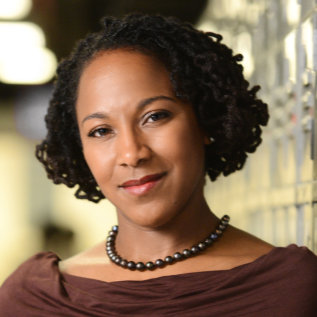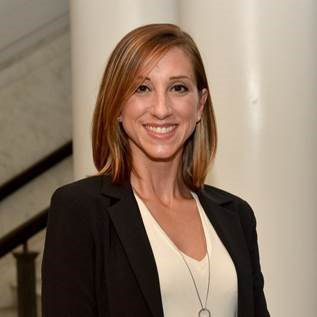A law professor, a medical ethicist and a nurse discuss “one of medicine’s open secrets.”
At the beginning of her career as a labor and delivery nurse, Lawana Brown recalls the words of a patient in distress: “In the middle of me getting ready to triage her, she said that ‘I don’t want a black nurse. I want a white nurse. Get me somebody else.’” Today, Brown is an assistant professor at Regis College and a seasoned nurse practitioner who practices at the University of South Carolina, but back then, she had been practicing for just a few years. “You have little nuances of racist patients,” she says, ‘but this is the first one who said ‘I don’t want you.’”
Brown told her charge nurse, who was also African-American and directs her to tell the patient, ‘We have two African American nurses and an Asian. Which one do you want?’ The patient chose the Asian American nurse who was pulled from the nursery despite feeling less qualified to provide care. Did the charge nurse make the right call—and how much of an aberration was this experience?
 “Unfortunately those situations are much more common than most people think,” says Fordham Law School Professor Kimani Paul-Emile, associate director and head of domestic programs and initiatives at Center on Race, Law and Justice and faculty co-director of the school’s Stein Center for Law and Ethics. “I call it one of medicine’s open secrets. If you go to any hospital in the country, you’d be hard pressed to find a physician or a nurse who hasn’t had this experience or who doesn’t know someone else who has had this experience.”
“Unfortunately those situations are much more common than most people think,” says Fordham Law School Professor Kimani Paul-Emile, associate director and head of domestic programs and initiatives at Center on Race, Law and Justice and faculty co-director of the school’s Stein Center for Law and Ethics. “I call it one of medicine’s open secrets. If you go to any hospital in the country, you’d be hard pressed to find a physician or a nurse who hasn’t had this experience or who doesn’t know someone else who has had this experience.”
 At Grady Memorial Hospital in Atlanta, where Elizabeth Sivertsen is the medical ethicist, most of the patients are African American while much of the medical workforce is white. Siversten, who completed a master's of bioethics degree at Harvard Medical School and worked as a surgical trauma ICU nurse at Massachusetts General Hospital, recalls an African American patient who declared, during labor, ‘I am done with these white physicians. I need someone who understands me.’ Hearing Brown’s story, Siversten says, “You might be the best equipped nurse to take care of that woman and she doesn’t understand that because all she’s seeing is the color of your skin. I think that’s unfortunate and we have to step back and look at not just what the patient wants or desires but how are you going to be able to provide the most good to this woman? Is it by changing clinicians and having her feel more comfortable or are you going to have to say that’s just completely not possible?”
At Grady Memorial Hospital in Atlanta, where Elizabeth Sivertsen is the medical ethicist, most of the patients are African American while much of the medical workforce is white. Siversten, who completed a master's of bioethics degree at Harvard Medical School and worked as a surgical trauma ICU nurse at Massachusetts General Hospital, recalls an African American patient who declared, during labor, ‘I am done with these white physicians. I need someone who understands me.’ Hearing Brown’s story, Siversten says, “You might be the best equipped nurse to take care of that woman and she doesn’t understand that because all she’s seeing is the color of your skin. I think that’s unfortunate and we have to step back and look at not just what the patient wants or desires but how are you going to be able to provide the most good to this woman? Is it by changing clinicians and having her feel more comfortable or are you going to have to say that’s just completely not possible?”
From a legal perspective, Dr. Paul-Emile explains, “You have three interested parties: you have the right of the patients, you have the rights of the clinician, and then you have the obligations of the health care institution… if you accommodate the patient’s demands, are you discriminating against the assigned clinician, and then if you don’t accommodate the patient’s demands, and let’s say the patient hasn’t been screened or stabilized, then you could be violating the Emergency Medical Treatment and Labor Act which requires that any patient who presents in an emergency department be screened and stabilized to see if they have an emergency condition…if you force the patient to be treated by an unwanted clinician, that could be battery and there are issues of informed consent… in some ways, it’s a legal black hole.”
In a 2014 issue of Minority Nurse Magazine, retired nurse Dinah Penaflorida advised new nurses to remember that “the patient’s comfort and trust comes first. It is more important to be patient-centered in the care than to take the patient’s request personally. When the patient is in pain and suffering, it is not the time to talk about race and discrimination.”
Yet, Siversten wonders, “How much is too much? We have an obligation to provide care,” she says, but she also worries about “asking more than you’re obligated to do if you feel defeated either acquiescing to this demand or continuing to provide care.”
In order to prioritize her patients’ interests, Regis Professor Brown insulates herself from her personal feelings: “There are certain things that I can watch and ingest about racism and certain things I choose not to because I feel like ingesting those things is going to put me in a space where I can’t deliver the care that I need to, that I want to give to my patients regardless of their bias.”
In any other area of social life, Dr. Paul-Emile notes, we wouldn’t accommodate such a request: “It’s clearly illegal yet in medicine, it’s much more challenging.”



